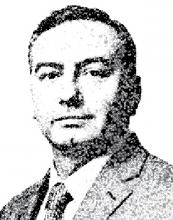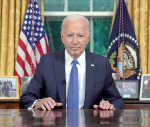You are here
Not too young to run
Oct 20,2018 - Last updated at Oct 20,2018
There is a need to build a more inclusive participatory democratic process to involve Jordanian citizens more in decisions affecting their lives, especially youth and women. This is a guiding principle His Majesty King Abdullah has been repeating for years. His Royal Highness Crown Prince Hussein also championed the UNSC 2250 Resolution on youth inclusion. What can be done to materialise these commitments?
In 2016 parliamentary elections, youth in the age range of 18-30 were 1,596,840 out of a total of 4,130,145 eligible voters. Youth in the age range 17-24 years were 978,335 voters, which makes 23.6 per cent of the total eligible voters. In this age group, those actually voted were 370,780 voted making 24.8 per cent of eligible voters in this age group. Youth in the age group 25-30 years were 618,505 eligible voters, constituting 14.9 per cent of the total eligible voters, of those 191,187 voted, making 12.8 per cent of voters in this age group. Over all, youth participation, especially those below 25 years old, was higher the national average. This is a base for further work.
In the the 2017 municipal and decentralisation elections, overall turn out increased from 24.2 per cent in 2013 to 31.7 per cent in 2017, mainly due to the automatic registration of eligible voters and not necessarily the performance of municipal services. Youth involvement in municipal elections in 2017 was lower than parliamentary elections of 2016. Exactly, 37.9 per cent of youth in the age group of 17-24 voted in Parliamentary elections compared to 33.3 per cent of 18-24 participated in 2017 municipal elections, the difference may be explained partially by the age as 17 years olds were allowed to vote in parliamentary elections and for municipal it was 18.
A frequently cited statement said that 70 per cent of Jordan’s population is under the age of 30. We can establish the argument on the premise that nearly a third of eligible voters do vote. Also, nearly a third of young voters vote. Youth are doing part of their share in voting and should do more.
However, they are not allowed to do more on candidacy as more youth candidates means more political power for the youth and by extension is good for the country’s future.
Constitutionally, there is a condition that a candidate for parliament should be 30 years old. For municipal, the law dictates that candidacy age is 25. The law also dictates that a judge should be at least 30 years old. These are not fixed in stone. They have changed in the past and there is no reason to think that they should not change again for the interest of all.
Despite these restrictions and in order to engage more younger people in the political process we ought to reconsider lowering the age of candidacy to parliamentary and municipal elections. It is a right that has been exercised in many countries and Jordan was the sponsor of UN Security Council Resolution 2250, which calls for “Member states to consider ways to increase inclusive representation of youth in decision-making at all levels in local, national, regional and international institutions”.
Jordan has also been a strong advocate for the achievement of the Sustainable Development Goals (SDGs), which aims to ‘ensure responsive, inclusive, participatory and representative decision-making at all levels.’ Support of these statements must be accompanied with action. This action should be mainly removing barriers while leaving the right to exercise the right to run for the youth themselves.
The writer is chairman of NAMA Strategic Intelligence Solutions













